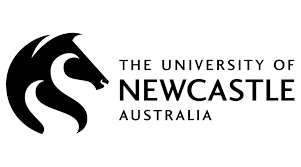University of Newcastle: Science challenge helping students discover a love of STEM for over 20 years
While this milestone is largely symbolic, the impacts of humanity on our planet are both real and acute.
Those impacts include the depletion of natural resources, accelerating rates of species extinctions and human-caused climate change.
Recognising the need for new knowledge to solve these global challenges, the United Nations designated 2022 as the International Year of Basic Sciences for Sustainable Development.
The basic sciences are defined as the scientific disciplines of mathematics, physics, chemistry, and biology.
It is these basic sciences which provide the essential means to meet crucial challenges such as universal access to food, energy, health and communication technologies.
They enable us to understand the impact of 8 billion people on the planet and to act to limit those impacts.
With its emphasis on sustainability, it was especially gratifying that the Science and Engineering Challenge team at the University of Newcastle was recognised as the recipient of the 2022 United Nations Day Honour, awarded by the United Nations Association of Australia in NSW – a humbling and very proud moment for the University and our team behind the challenge.
The Science and Engineering Challenge is an outreach program founded by the University of Newcastle in the year 2000.
Since then, it has grown to involve over 120 Rotary clubs and 30 Universities, reaching over 1,000 schools and around 30,000 students each year, in every state and territory in Australia.
The Science and Engineering Challenge consists of a small team of full-time staff based at the University of Newcastle. Delivering outreach activities to 30,000 students annually therefore relies on partnerships with volunteers, the Rotary organisation, local organising committees, schools and teachers, universities and sponsors.
In 2021, the Times Higher Education Impact Rankings ranked more than 1200 universities globally against the 17 United Nations Sustainable Development Goals.
For Sustainable Development Goal number 17 on “partnerships for the goals”, the University of Newcastle was ranked number one university in the world.
The partnerships which have been central to the success of the Science and Engineering Challenge over more than two decades therefore reflect not only the values of the University of Newcastle, but the Sustainable Development Goals of the United Nations.
For over 20 years, the Science and Engineering Challenge has been equipping future generations with the curiosity, knowledge, capacity and problem-solving skills needed to address global challenges and innovate for sustainable development.
Around 50% of our participants identify as female. Close to 60% of participants are regional, rural or remote students, with Indigenous students comprising more than 5% of participants each year.
The Challenge provides students with a day of hands-on applications of STEM through design-and-build challenge activities. Students explore scientific principles for themselves rather than being guided to a pre-determined answer.
The 2021 State of Australia’s Skills report by the National Skills Commission concluded that STEM skills form an integral part of the labour market in Australia, facilitating more complex and innovative work in many industries.
In the 20 years before the emergence of COVID-19, employment in STEM occupations grew by 85%, which was more than twice as fast as non-STEM occupations. Similar trends are projected for the next five years.
Access to STEM employment is therefore a critical issue for equity: for female students, for First Nations Australians, for regional, rural and remote students, and for students from areas of economic disadvantage.
As a nation, unless we make opportunities for STEM education and STEM careers available to all students, regardless of background, we will “bake in” structural inequity and economic disadvantage for the next generation.
The Science and Engineering Challenge addresses the skills shortage in science and engineering by inspiring young people to study Science, Technology, Engineering and Mathematics (STEM) subjects in senior high school.
The program continues to be a highlight in high school calendars right across the country. We know students love the hands-on science challenges and teachers tell us students beg them to be included in their teams each year.
Just as rewarding is looking ahead to the next 20 years of the program and knowing that by challenging students to think creatively by building a hovercraft or designing a bridge, we have played some part in inspiring the next generation to pursue a career in STEM.
Hopefully, we can inspire our young people to help solve the pressing challenges we face across the globe.

